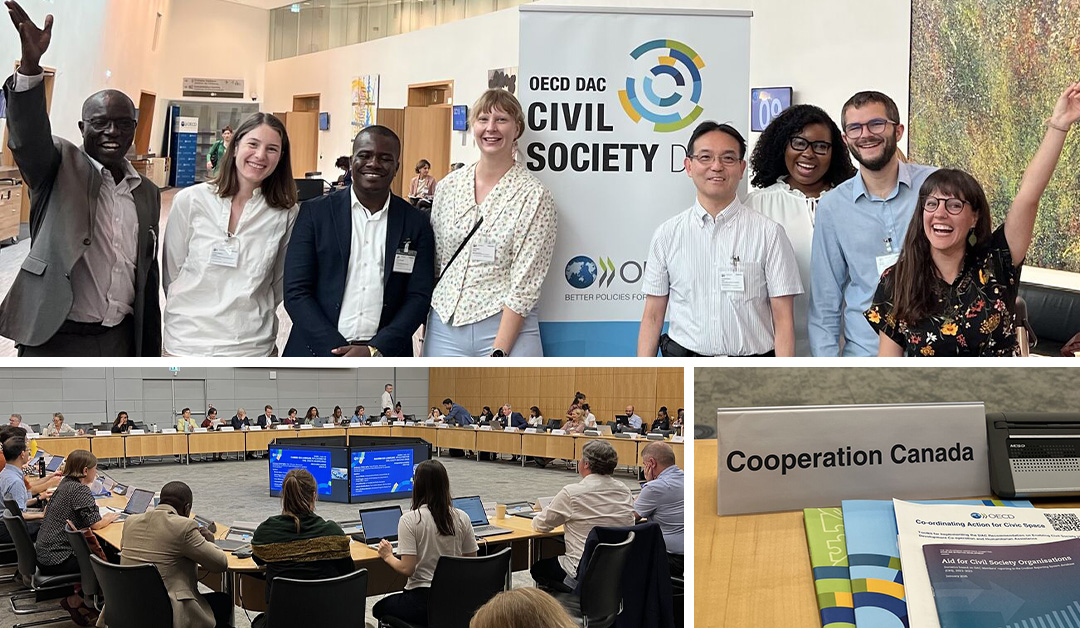In June 2025, Cooperation Canada joined civil society and government actors in Paris for the OECD Development Assistance Committee (DAC) Civil Society Days. As the primary body through which donor countries coordinate development assistance policies, the DAC plays a critical role in shaping how international cooperation supports democracy, rights, and civic engagement globally.
The context could not be more urgent. Around the world, civil society organizations are operating in increasingly hostile environments. Criminalization of advocacy, digital repression through cybercrime laws, internet shutdowns, and the securitization of protest are no longer isolated phenomena. They are becoming systemic features of governance in too many places.
And yet, it is important to acknowledge a critical point raised during discussions: for many communities, civic space has never truly been open. While we often speak of “closing space,” some civil society actors, particularly those representing historically marginalized groups, have always operated on the margins of visibility, legitimacy, and safety. That reality must shape how we design and deliver development cooperation.
In politically constrained environments, donor engagement remains complex. Speakers emphasized the importance of staying present, not disengaging, while adopting flexible, context-sensitive approaches. The forthcoming OECD toolkit on coordinated action for civic space was welcomed as a practical step in that direction.
A key shift in thinking emerged around Locally Led Development (LLD). There was a clear call to move beyond the notion of “capacity building” which too often implies a deficit model, and toward capacity sharing, which values the experience and leadership of local actors. This framing challenges long-standing hierarchies in development and demands a more equitable approach to partnership.
This shift is also linked to how we understand and manage risk. Development actors must reconsider risk not only as a question of fiduciary control or institutional reputation, but as something already deeply embedded in the daily work of civil society, particularly in repressive environments. True solidarity requires donors to take on part of that risk, rather than outsourcing it through overly rigid accountability frameworks.
The session on climate governance brought this to the fore. While adaptation finance has surged since the Paris Agreement, outcomes for the most climate-vulnerable communities remain disappointingly narrow and technocratic. Without meaningful civil society engagement and public trust, adaptation efforts will continue to miss the mark.
Finally, as the DAC prepares to release its five-year implementation report on the 2021 Recommendation on Enabling Civil Society, participants reaffirmed the need to translate donor commitments into consistent, coherent support for civil society. That means funding that is flexible and long-term, mechanisms for accountability that are participatory, and policies that protect, not just tolerate, independent civic actors.
At Cooperation Canada, we continue to champion these principles. Civic space is not a development add-on; it is the very ground on which democratic, inclusive, and accountable development stands.


